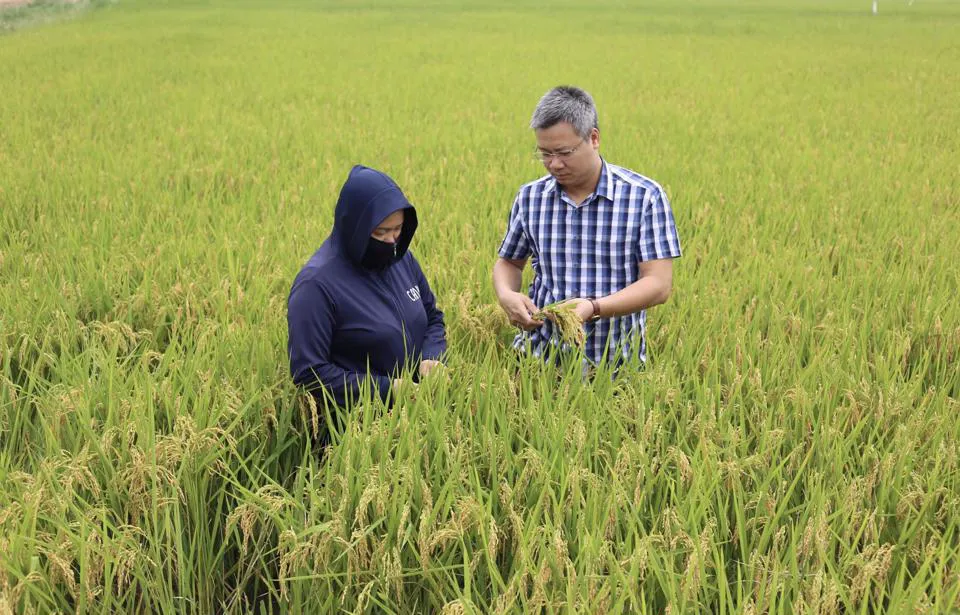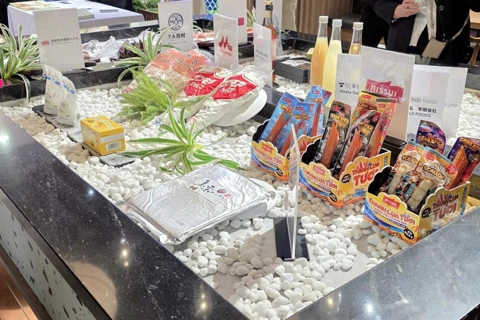Hanoi develops green agriculture
Green agriculture is a closed production process through applying scientific and technical advances, biotechnology and physicochemical technology.
Green agriculture is a sustainable direction that Hanoi has been making effort to develop, according to Deputy Director of the municipal Department of Agriculture and Rural Development Nguyen Manh Phuong.
Green agriculture is an inevitable orientation of modern agriculture, Phuong said, adding that Hanoi has recently switched more than 40,227 hectares of rice land to new agricultural production models.
Besides, developing green agriculture also helps to raise people's awareness on environment protection, reduce greenhouse gas emissions and pollution, the deputy director stressed.
Rice cultivation by modern method brings high efficiency in Hanoi outskirt district of Ung Hoa. Photo: Ngoc Anh |
These recirculating farming systems ensure both nutrition and adaptation to climate change. In the context of high production costs of fertilizers and animal feed, the model of rice-fish-duck has been prevalent, helping farmers hold on to their jobs, Hoach emphasized.
Director of the Hanoi Agricultural Extension Center Vu Thi Huong said that green agriculture is a closed production process through applying scientific and technical advances, biotechnology and physicochemical technology.
Products and waste by-products will be used and recycled as input materials for agricultural, forestry and fishery production; creating safe and high-quality products; reducing waste and loss; minimizing solid waste; increasing socio-economic and environmental efficiency, Huong noted.
She stressed that the basic principle of green agriculture is that all waste of the production process must be considered as a resource, a raw material for the next production process.
Director of Hop Tien Agricultural Cooperative in Hanoi’s suburban district of My Duc Nguyen Ha Tuyen shared that as a locality with with more than 500 hectares of agricultural land, his locality needs to build a strategy on the circular economy model to develop green agriculture.
However, development of green agriculture in the current period needs to be closely linked with the application of scientific and technological advances, modern machinery and equipment, Tuyen said.
Besides, it is necessary to build production linkage chains, clearly define the roles of each element, towards specialization and systematization. Moreover, it is necessary to keep raising producers’ awareness about the circular economy, because right awareness leads to right action, Tuyen added.












